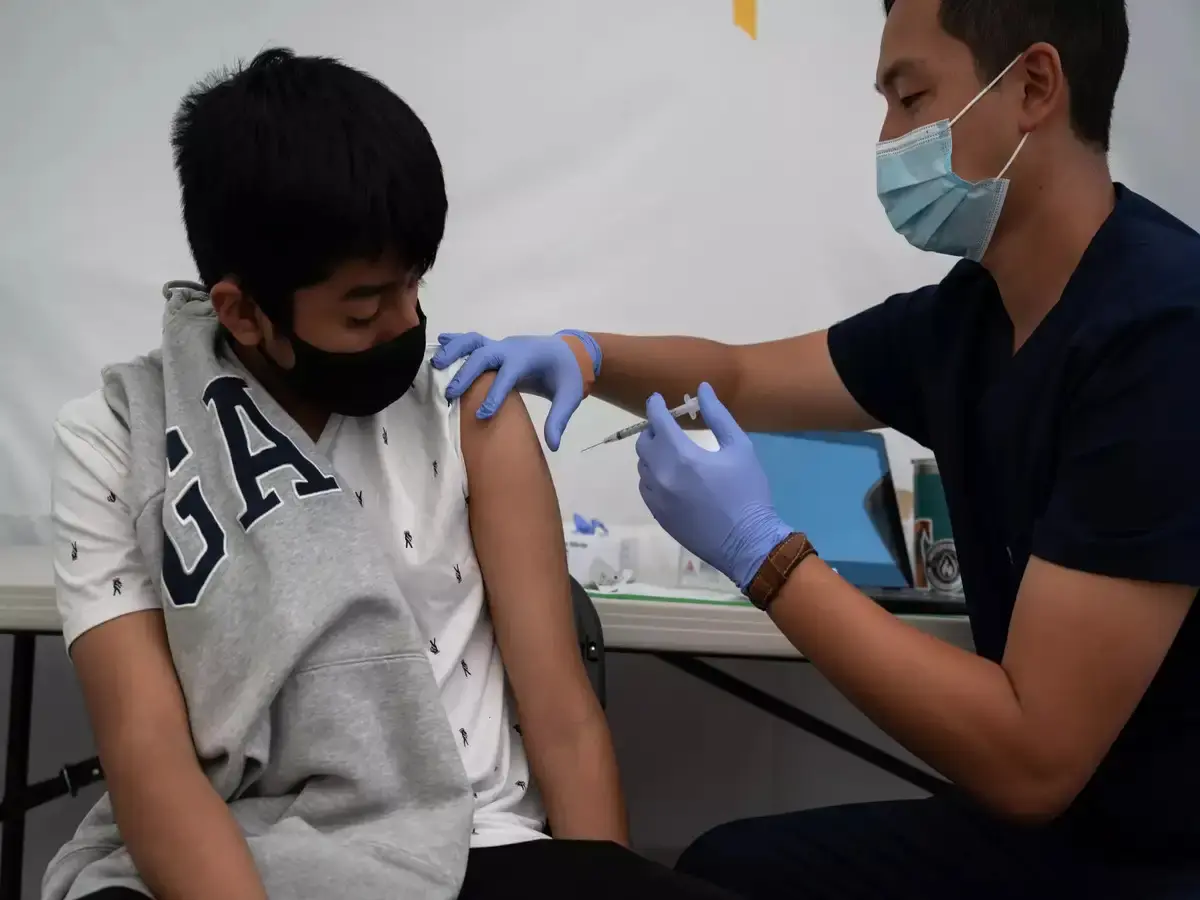The U.S. Food and Drug Administration (FDA) has mandated new warning labels for Pfizer’s Comirnaty and Moderna’s Spikevax COVID‑19 vaccines. This move follows mounting data highlighting a rare but elevated risk of myocarditis, particularly among adolescent and young adult males.
This expanded caution builds upon earlier FDA and CDC guidelines but broadens the age threshold and specifies updated case rates reflective of recent safety reviews and insurance claim data. While the CDC maintains that most vaccine-induced myocarditis cases are mild and quickly recoverable, the FDA chose to err on the side of transparency.
What Is Myocarditis?
Myocarditis is inflammation of the heart’s muscular tissue, often triggered by infections or vaccines. While generally rare, it has been identified as a possible side effect of mRNA COVID-19 vaccines, particularly following the second dose in male teens and young adults .
Why Was It Issued In FDA Label Update?
In April, the FDA requested updated labels for the 2023–2024 mRNA COVID vaccines. The new labels reflect:
-
Incidence: 8 cases per million doses in individuals aged 6 months to 64 years
-
Higher risk group: Males aged 12–24, at approximately 27 cases per million doses
This labeling expands upon previous guidance that focused on 12–17‑year-olds and addresses updated data.

Myocarditis Symptoms to Look For
Spotting myocarditis early can be life-saving. According to Mayo Clinic and other experts, key myocarditis symptoms include:
-
Chest pain (sharp, tight, or pressure-like)
-
Shortness of breath, at rest or during activity
-
Heart palpitations (fluttering or racing heartbeat)
-
Lightheadedness, fainting
-
Fatigue, general weakness
-
Flu-like symptoms: fever, body aches, sore throat
-
Rapid or irregular heartbeat (arrhythmias)
These may appear within a few days of vaccination, particularly after a second dose.
How Serious Is Vaccine-Related Myocarditis?
-
Most cases tend to be mild, with symptoms resolving via rest and anti-inflammatories.
-
Rarely, MRI scans find lingering signs of inflammation months after onset, though long-term impact is uncertain.
-
Compared to COVID-19 infection, vaccine-induced myocarditis is much rarer and less severe; SARS‑CoV‑2 can trigger myocarditis at a significantly higher rate.
What Should You Do If You Notice Symptoms?
Seek immediate medical attention if you or someone you know experiences unexplained chest pain, rapid heartbeat, or difficulty breathing—especially within a week of vaccination . Early treatment and diagnosis can prevent complications.
Label Changes Sparks Debate
The FDA’s decision comes amid broader changes in vaccine policy and oversight led by Health Secretary RFK Jr. and FDA Commissioner Marty Makary, who have scaled back COVID booster guidance. Some experts argue the expanded label may alarm parents unnecessarily, advocating instead for research to identify individuals at risk apnews.com.
Risks vs Benefits of The COVID Vaccine
Despite the myocarditis warning, health authorities like the CDC maintain that the benefits of COVID-19 vaccination—in preventing severe illness, hospitalization, and complications—strongly outweigh the small myocarditis risk.
Healthcare providers are advised to monitor individuals—particularly young males—who exhibit:
-
Acute chest pain
-
Breathing difficulties or palpitations post-vaccination
Evaluation protocols include electrocardiograms (ECG), troponin tests, inflammatory markers, and echocardiograms. Cardiology consultation is recommended when symptoms arise. Most patients respond well to rest and standard medical treatment, with resolution of symptoms before hospital discharge
The FDA’s updated warnings aim to improve transparency and awareness around myocarditis post-vaccination, especially among young males. While vigilance is prudent, the prevailing scientific consensus supports continuing COVID-19 vaccinations as the broader public health benefit continues to outweigh these rare side effects.


